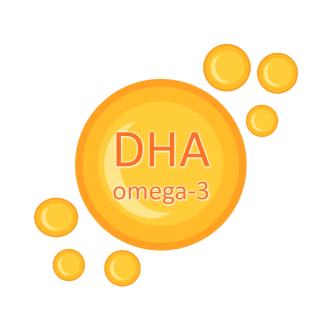
Potassium is an essential mineral and electrolyte that plays a crucial role in maintaining various bodily functions. Its significance spans from regulating fluid balance to ensuring proper muscle function and supporting cardiovascular health. Despite its importance, potassium deficiency is a common issue that can have serious health implications. This comprehensive description will delve into the causes of potassium deficiency, its role in muscle function and electrolyte balance, its impact on heart rate, effective methods of potassium utilization, sources of potassium, available commercial products, and how to test for adequate potassium levels. Additionally, it will highlight symptoms that should prompt a visit to the doctor.
What Causes Potassium Deficiency?
Potassium deficiency, also known as hypokalemia, can arise from various factors:
1. Inadequate Dietary Intake
One primary cause of potassium deficiency is insufficient dietary intake. Potassium is predominantly found in fruits, vegetables, legumes, and whole grains. Diets lacking these foods can lead to inadequate potassium levels. For instance, a study published in The American Journal of Clinical Nutrition found that low potassium intake is common in populations with diets high in processed foods and low in fresh produce.
2. Excessive Losses
Excessive potassium loss through the gastrointestinal tract is another significant cause. Conditions such as:
- Diarrhea and Vomiting: Chronic or severe episodes of diarrhea and vomiting can lead to substantial potassium loss. Research in Gastroenterology highlights that prolonged gastrointestinal disturbances can severely deplete potassium levels.
- Diuretic Use: Diuretics, often prescribed for hypertension or heart failure, increase urine output, which can lead to potassium loss. According to Hypertension, patients on diuretics need careful monitoring of their potassium levels.
3. Kidney Disorders
Kidney function is crucial for potassium regulation. Conditions that impair kidney function, such as chronic kidney disease or acute kidney injury, can lead to either excessive loss or retention of potassium. The Journal of the American Society of Nephrology indicates that kidney disease often disrupts potassium homeostasis.
4. Hormonal Imbalances
Hormonal imbalances, particularly related to the adrenal glands, can also cause potassium deficiencies. For example, hyperaldosteronism, a condition characterized by excess aldosterone, increases potassium excretion. Research in Endocrine Reviews discusses how this condition can lead to significant hypokalemia.
5. Medications
Certain medications, besides diuretics, can affect potassium levels. For example, some antibiotics and corticosteroids have been shown to alter potassium balance. Studies in Drug Safety have examined how these medications can impact potassium levels and necessitate monitoring.
The Role of Potassium in Muscle Function
Potassium is essential for proper muscle function due to its role in muscle contraction and nerve signal transmission.
1. Muscle Contraction
Potassium helps regulate muscle contraction by maintaining the electrical gradients across cell membranes. Adequate potassium levels are necessary for the proper functioning of muscle cells. The Journal of Physiology explains that low potassium levels can lead to muscle weakness and cramps due to impaired electrical signaling.
2. Nerve Signal Transmission
Potassium plays a critical role in the transmission of nerve impulses. It helps generate the action potentials necessary for muscle contraction. A study in Neuroscience highlighted how potassium imbalances can affect nerve function and contribute to muscle fatigue and cramping.
Regulating Electrolyte Balance
Potassium is a key electrolyte that contributes to the maintenance of fluid balance and the regulation of acid-base balance in the body.
1. Fluid Balance
Potassium works in concert with sodium to maintain fluid balance within and outside cells. This balance is crucial for preventing dehydration and maintaining blood pressure. Research in The New England Journal of Medicine shows that potassium helps regulate fluid levels by counteracting the effects of sodium.
2. Acid-Base Balance
Potassium helps regulate the body’s pH levels by influencing the acid-base balance. It helps buffer the blood and maintain a stable pH, which is essential for various biochemical processes. A review in Critical Care Medicine discusses how potassium imbalances can lead to metabolic acidosis or alkalosis.
Everything You Need to Know About How Potassium Affects Your Heart Rate
Potassium’s impact on heart health is significant, as it influences cardiac rhythm and overall cardiovascular function.
1. Heart Rhythm Regulation
Potassium plays a vital role in regulating heart rhythm. It affects the electrical impulses that coordinate heartbeats. Hypokalemia can lead to arrhythmias, or irregular heartbeats, which can be potentially life-threatening. A study in Circulation demonstrated that potassium deficiency increases the risk of ventricular arrhythmias.
2. Blood Pressure Control
Potassium helps regulate blood pressure by counteracting sodium's effect on blood vessels. Higher potassium intake is associated with lower blood pressure. Research published in The Lancet supports the link between potassium intake and reduced risk of hypertension and stroke.
Effective Methods of Potassium Utilization
1. Dietary Intake
Increasing dietary intake of potassium-rich foods is a primary method for managing potassium levels. Foods such as bananas, oranges, potatoes, spinach, and legumes are excellent sources. The American Heart Association recommends including these foods in a balanced diet to support adequate potassium levels.
2. Supplementation
For individuals who cannot meet their potassium needs through diet alone, supplements may be necessary. Potassium supplements should be used under medical supervision to avoid hyperkalemia. Clinical Pharmacology & Therapeutics provides guidelines on safe supplementation practices.
Can I Get Potassium from Food, or Where Can I Get It?
Potassium is widely available in a variety of foods:
1. Fruits
- Bananas: One of the most well-known sources of potassium.
- Oranges: Provide a good amount of potassium along with vitamin C.
2. Vegetables
- Potatoes: Rich in potassium, especially when eaten with the skin.
- Spinach: A leafy green that is high in potassium.
3. Legumes
- Lentils and Beans: These provide significant amounts of potassium and are also high in fiber.
4. Other Sources
- Nuts and Seeds: Almonds and sunflower seeds contain potassium.
- Dairy Products: Milk and yogurt are also sources of potassium.
What Commercial Products Are Available in the Market?
1. Potassium Supplements
Potassium supplements are available in various forms, including tablets, capsules, and powders. Common brands include:
- K-Dur: Extended-release tablets.
- K-Lor: A powder that dissolves in water.
2. Fortified Foods
Some foods are fortified with potassium to help increase intake. These may include:
- Potassium-enriched salt substitutes.
- Fortified cereals and beverages.
How Do We Test That I Have Enough Potassium?
1. Blood Tests
The most common method for testing potassium levels is a serum potassium test, which measures the amount of potassium in the blood. This test can help diagnose hypokalemia or hyperkalemia and monitor treatment.
2. Urine Tests
A 24-hour urine collection test can measure potassium excretion and help assess whether the kidneys are properly regulating potassium levels.
When Is It Time to See a Doctor: Symptoms You Shouldn't Ignore!
1. Heart Symptoms
- Irregular Heartbeats: If you experience palpitations or irregular heartbeats, this could be a sign of a potassium imbalance. Immediate medical attention is necessary.
2. Muscle Symptoms
- Severe Muscle Cramps: Persistent or severe muscle cramps, weakness, or fatigue may indicate a potassium deficiency. Consulting a healthcare provider is important for diagnosis and treatment.
3. Neurological Symptoms
- Numbness or Tingling: Unexplained numbness or tingling sensations could be related to potassium imbalances affecting nerve function.
4. General Symptoms
- Severe Fatigue: Chronic fatigue or weakness can also be a sign of potassium deficiency and should be evaluated by a doctor.
Potassium is vital for many aspects of health, from muscle function to heart rhythm regulation. Understanding its role and ensuring adequate levels through diet, supplementation, and regular testing can help prevent deficiencies and maintain overall health. If you experience symptoms of potassium imbalance, timely medical intervention is crucial to prevent serious complications.






